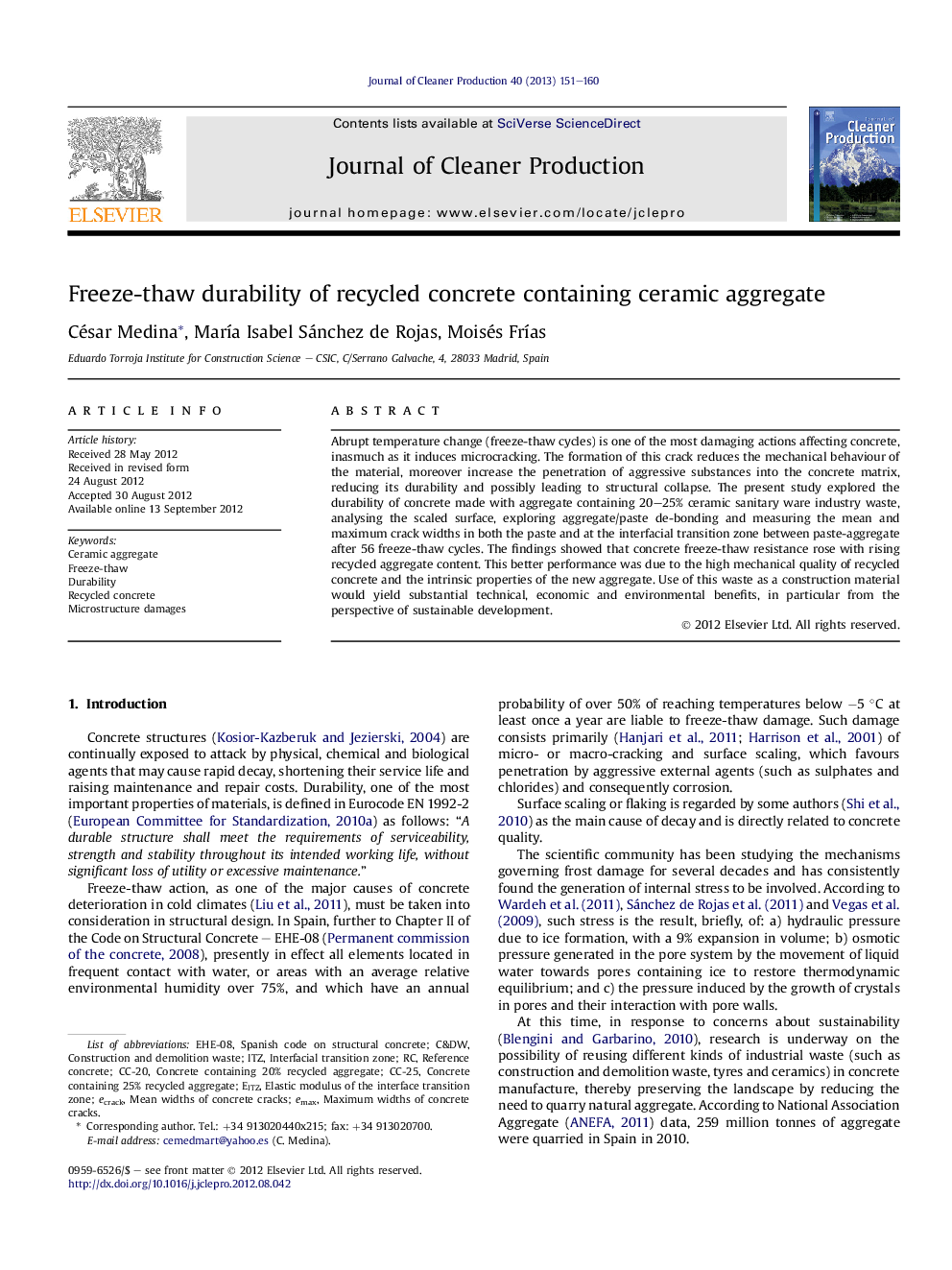| Article ID | Journal | Published Year | Pages | File Type |
|---|---|---|---|---|
| 1745597 | Journal of Cleaner Production | 2013 | 10 Pages |
Abrupt temperature change (freeze-thaw cycles) is one of the most damaging actions affecting concrete, inasmuch as it induces microcracking. The formation of this crack reduces the mechanical behaviour of the material, moreover increase the penetration of aggressive substances into the concrete matrix, reducing its durability and possibly leading to structural collapse. The present study explored the durability of concrete made with aggregate containing 20–25% ceramic sanitary ware industry waste, analysing the scaled surface, exploring aggregate/paste de-bonding and measuring the mean and maximum crack widths in both the paste and at the interfacial transition zone between paste-aggregate after 56 freeze-thaw cycles. The findings showed that concrete freeze-thaw resistance rose with rising recycled aggregate content. This better performance was due to the high mechanical quality of recycled concrete and the intrinsic properties of the new aggregate. Use of this waste as a construction material would yield substantial technical, economic and environmental benefits, in particular from the perspective of sustainable development.
► The ceramic waste analysed from the sanitary ware industry. ► This waste is used as a coarse aggregate in the manufacture of structural concretes. ► The durability to freeze-thaw cycles of these concretes is better than convectional concretes. ► ITZ of the new aggregate/paste is more resistance than natural aggregate. ► The recycled ceramic aggregate improve the quality of new concretes.
